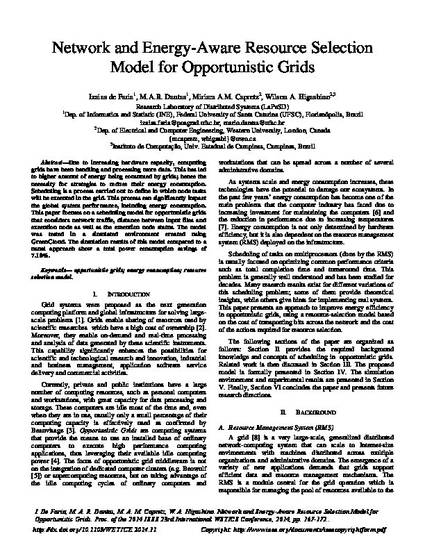
Due to increasing hardware capacity, computing grids have been handling and processing more data. This has led to higher amount of energy being consumed by grids; hence the necessity for strategies to reduce their energy consumption. Scheduling is a process carried out to define in which node tasks will be executed in the grid. This process can significantly impact the global system performance, including energy consumption. This paper focuses on a scheduling model for opportunistic grids that considers network traffic, distance between input files and execution node as well as the execution node status. The model was tested in a simulated environment created using GreenCloud. The simulation results of this model compared to a usual approach show a total power consumption savings of 7.10%.
Available at: http://works.bepress.com/wilson_higashino/2/
Copyright: http://www.ieee.org/documents/ieeecopyrightform.pdf